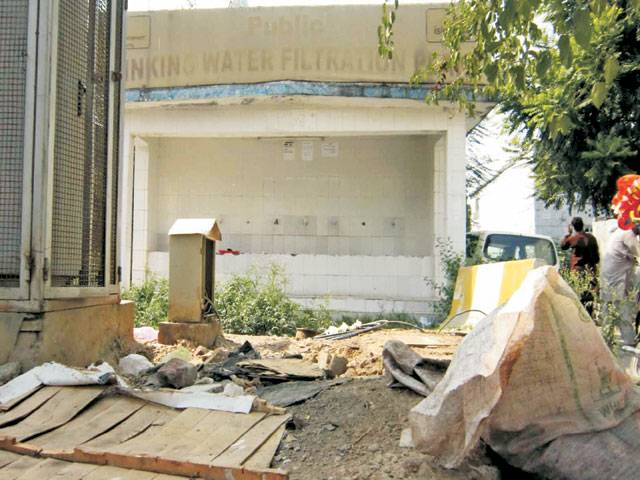Islamabad - Clean and safe drinking water is fast becoming a rare commodity for the residents of the federal capital.
Now, it has been transpired that even government-run water filtration plants installed in different sectors across Islamabad are providing water that is not safe for human consumption, according to two separate reports recently released a local non-governmental organisation and the capital’s civic agency itself.
The Capital Development Authority itself manages these filtration plants.
On one hand the situation is unsatisfactory in this regard, while on the other the federal government has only been focusing on multibillion rupees projects, which fall under the category of cosmetic development of Islamabad, like Metro Bus project, underpasses, roads and bridges.
Both Capital Development Authority and newly established Islamabad Municipal Corporation (IMC) have not been taking concrete steps to at least ensure provision of safe drinking water at filtration plants.
The situation is also in contrast with the provisions of the Safe Drinking Water Act (SDWA) passed by the federal government. The law stresses on provision of clean drinking water supply throughout Pakistan.
The Nation visited a water filtration plant at sector G-7/1, adjacent to Aabpara Market. What to say about water being supplied from the plant, the overall cleanliness situation in and around the plant was pathetic.
Heap of garbage can easily be seen in vicinity of the plant, while most of the taps there are out of order.
Residents of the area were found complaining that they in recent past lodged a number of complaints with the water supply directorate of the CDA to pay attention towards the issue but all in vain.
“I have stopped fetching water from this filtration plant,” says Samina Rasool, a resident of sector G-7/1. She said she decided not to get water from this plant after a report was published recently about quality of water being supplied from such filtration plants.
A report recently launched by The Network, a local NGO working for the protection of consumer rights, indicates that more than 70 per cent water filtration plants in twin cities are providing contaminated water.
The Network in its report mentioned filtration plants located at sector F-6, F-10/1, G-7/4, I-10/2, I&T Centre in G-7/1, G-6/1-4, G-7/3, G-8/2, FIA Building, G-8/1, and G-11-2 are providing water which is not fit for human consumption.
When contacted, the CDA spokesperson claimed that authority spends Rs 16.7 million annually to maintain and improve water quality being supplied from these water filtration plants.
“Most of the CDA filtration plants installed in capital supply contaminated water to users. Every plant requires chemical laboratory check-up in every three months, but civic agency does not pay any attention to do regular test quality of water,” said Faizan Ahmad, a member of Pakistan Council of Research in Water Resources.
In Feb 2016, the CDA conducted the chemical laboratory test of 12 filtration plants in the city. The results were obvious. Of 12 some seven filtration plants were supplying water unfit for human consumption.
Faizan further said that in addition to the CDA filtration plants, the PCRWR has also installed 10 filtration plants in the capital. “The PCRWR ensures in time water testing and replacement of water filters on monthly basis,” he informed.
Due to the negligence of authorities, the waterborne diseases are on the rise in the capital. The morality rate of under-five year children due to contaminated water is 101 per 1,000 children, according to the same report of PCRWR. It further revealed that 75 per cent of water being supplied to Islamabad is not fit for human consumption because of bacterial contamination.
Some of the waterborne diseases include diarrhoea, worn infection, typhoid, diabetes, birth defects, skin, heart and kidney related diseases and more alarming, multiple types of cancers etc, said Dr Imtiaz, a child specialist at a private hospital in Islamabad. Concrete measures are needed to be taken by civic authorities to fix out the matter, he added.
–The writer is a freelance contributor.






